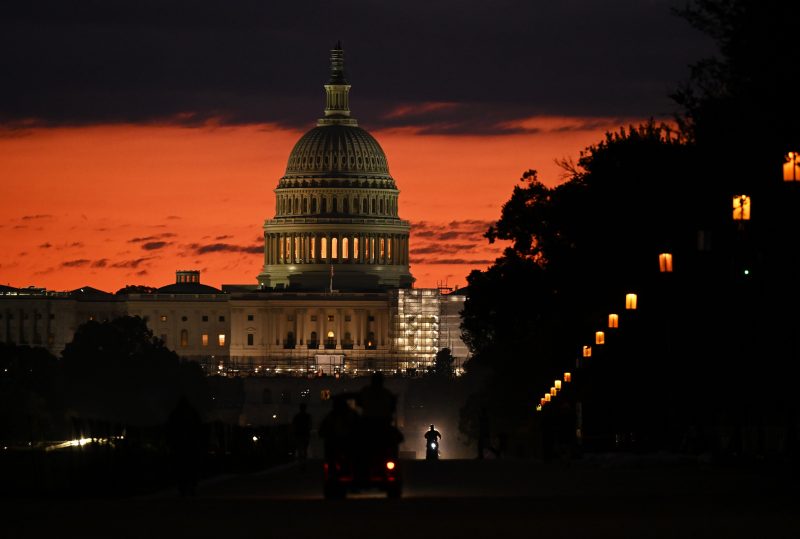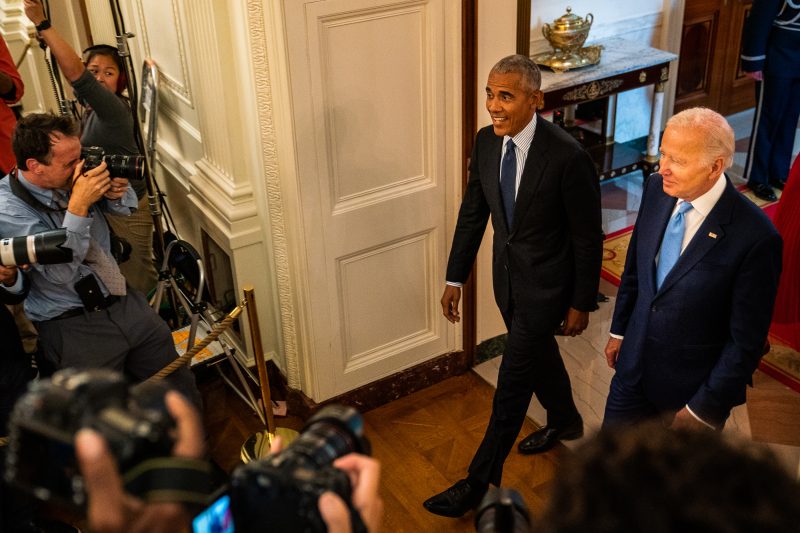Senate moves forward on short-term deal to avert government shutdown

Senate Democrats and Republicans announced a short-term funding deal Tuesday night that would fund the government for six weeks while including additional money for Ukraine and domestic disaster relief.
The deal, reached days before the government would shut down on Saturday, cleared its first procedural hurdle Tuesday night, passing 77-19. It still will go through the full Senate process and face a final vote before heading to the House, where its future is uncertain.
The short-term deal, called a continuing resolution, allocates $4.49 billion for the Defense Department’s effort in Ukraine, alongside $1.65 billion in additional aid for the war-torn country, money that will remain available until Sept. 30, 2025. Combined, the more than $6 billion is far less than the White House’s request for $20.6 billion in Ukraine funding. But if the plan becomes law, Congress will almost certainly pursue additional money for Ukraine later this fall.
On the Senate floor Tuesday, Majority Leader Charles E. Schumer (D-N.Y.) said the Senate’s short-term bill “will continue to fund the government at present levels, while maintaining our commitment to Ukraine’s security and humanitarian needs while also ensuring those impacted by natural disasters across the country begin to get the resources they need.”
The looming government shutdown: What to know
End of carousel
The future of U.S. funding for Ukraine’s defense against Russia has splintered Republicans on the Hill and set up a collision between the House and the Senate as they look to avert a government shutdown.
On Tuesday, House Speaker Kevin McCarthy (R-Calif.) said funding for Ukraine should be dealt with in a supplemental request and not tacked onto a stopgap bill.
“I don’t quite understand, when you have all these people across the country talking about the challenges happening in America today, that people would go and say, ‘Oh, we need to do Ukraine and ignore what’s happening along our border,’” he said. McCarthy and other House Republican leaders have spent the past several days saying border security should be included in any short-term funding deal.
House Republicans have all but punted on a short-term solution that would keep the government open beyond Saturday, choosing instead to focus on long-term appropriations bills. McCarthy has been unable to unite his conference behind a short-term plan that would both appease his hard-right flank and ensure he keeps his leadership position.
GOP leadership focused its energies Tuesday on long-term spending bills, setting up an evening vote to advance four measures that would fund defense, agriculture, the State Department and homeland security for a full fiscal year. Republican leaders hope that moving forward on fiscal 2024 bills, a key demand of hard-liners opposed to a short-term solution, will eventually shake enough support loose for a stopgap deal with the Senate.
If the Senate advances the stopgap measure, the bill will then go through the Senate amendment process. Sen. Rand Paul (R-Ky.), who opposes further funding for Ukraine, has said he would try to slow down the process to get the bill on the Senate floor for a final vote, which could stretch beyond the midnight Saturday deadline to keep the government open.
However, McCarthy is unlikely to bring the Senate proposal up for a vote, since it would require Democratic support to pass, according to multiple Republican aides who spoke on the condition of anonymity to discuss internal party dynamics. Members on the hard right, including many within the staunchly conservative House Freedom Caucus, have said that relying on Democrats to move the stopgap bill would probably result in a Republican lawmaker filing a motion to remove McCarthy from his speakership.
Ahead of Tuesday’s House votes, a defiant McCarthy appeared confident that he had the votes to advance the four appropriations bills. For the past week, McCarthy and his allies have criticized GOP holdouts by arguing that they are the ones working with Democrats, since they’re voting alongside that party to block appropriations bills.
“It’d be concerning to me that there would be people in the Republican Party that will take the position of President Biden against what the rest of Americans want,” McCarthy said Tuesday. “I don’t understand how, at the end of the day, they’d would stay in that lane.”
Eli Tan contributed to this report.




